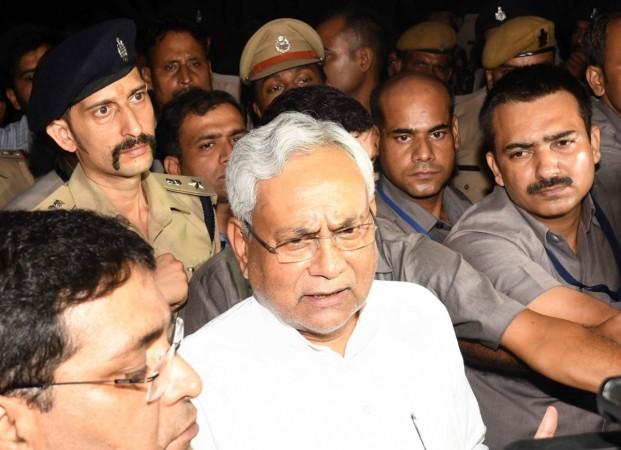
Shashi Tharoor is one of the most erudite politicians in India, no doubt. His sheer choice of words can floor his opponents on any day though it is unfortunate that his party – the Indian National Congress – is only drifting away from the seat of power each day.
On Thursday, July 27, Tharoor let loose his linguistic arsenal on Twitter by mentioning "snollygoster" which means "a shrewd, unprincipled politician". He also said that the term was first used in 1845 while its latest usage came on July 26, 2017 – the day Bihar Chief Minister Nitish Kumar ended his association with the RJD and took the support of the "communal" BJP to form a fresh government in his state.
Word of the day!
— Shashi Tharoor (@ShashiTharoor) July 27, 2017
Definition of *snollygoster*
US dialect: a shrewd, unprincipled politician
First Known Use: 1845
Most recent use: 26/7/17
Tharoor, who has been mostly fighting against the British who had left India 70 years ago, perhaps took an indirect dig at Nitish this time by mentioning the word. And he also used the political drama in Bihar to back his arguments in favour of a presidential system of government.
According to Tharoor, only a presidential form of governance could see the end of the rule of the "chatur" (cunning) politicians. He said in a system like India where the legislature forms the executive, it is easier for the political parties to betray the electorate's will.
The Thiruvanantapuram MP added that the BJP formed governments in three states despite losing elections (Goa, Manipur and now Bihar) and that shows the Indian democracy in "poor light".
The system has not failed us; we have failed the system
Tharoor might be right in pointing out the fallen principles of democracy but he cannot overlook the fact that it was the failure of the Congress which had seen the BJP running away with power in the three above-mentioned states. Tharoor's repentance should be more about his own party's callousness than the system itself. If the Congress knew that Nitish was gradually leaning towards the BJP, why did not give it all to ensure that the tallest leader in the Opposition camp did not shift camps? Does democracy end with counting of votes? The Congress's current state has, it seems, buried the very concept of managerial meets that is such an integral part of the democratic system.
Although India is not a presidential system, but the personality cult factor in the country's politics has made it a quasi-presidential one in essence.

What if the presidential system also backfires?
The Bihar drama, for instance, was scripted mainly by an individual (Nitish Kumar) and not a party and it is very difficult to find a solution for the current system we have – parliamentary system in structure with an increasingly presidential spirit. India has had seen a number of leaders who personal charisma overshadowed the system (Jawaharlal Nehru, Indira Gandhi, Rajiv Gandhi to Narendra Modi at the Centre to MGR, Jayalalithaa, Mamata Banerjee, Nitish, Lalu Prasad, Mayawati at the states) and to settle for a presidential model would only mean that the individuals' hands will be strengthened more, something which is already a concern.
Tharoor needs to engage in some soul-searching instead of advising a complete overhaul of the system to get rid of the evils. If the parliamentary system has failed India, so will the presidential system. Instead of aiming for wild reforms, Tharoor needs to ask his own party to pull up the socks and do some favour to the prevailing system.















